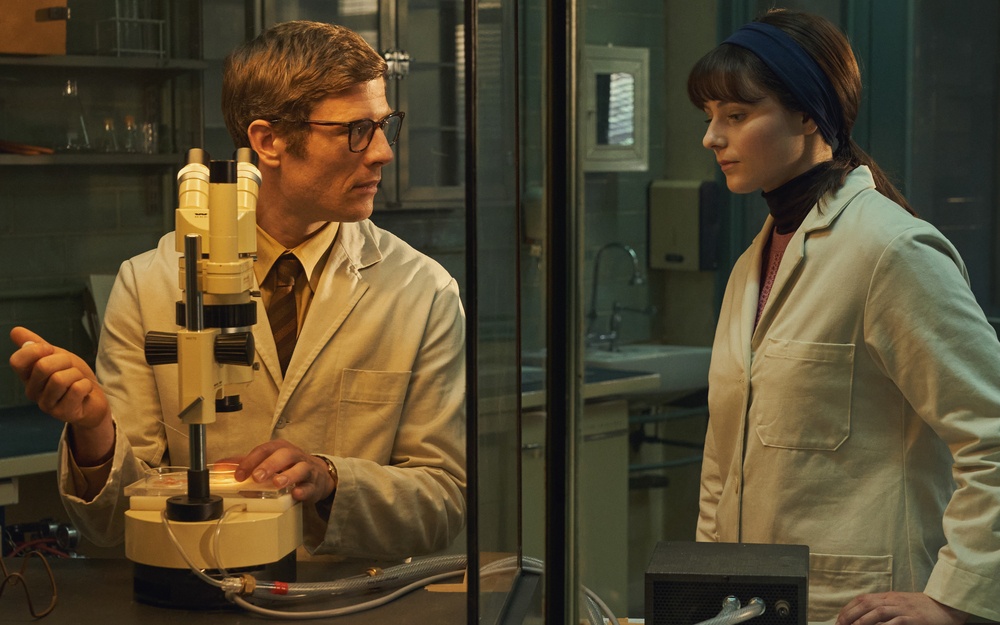Joy

James Norton and Thomasin McKenzie star in JOY. (Photo: Netflix)
As an inspiring true-life chronicle of women taking ownership of their reproductive rights, Joy carries obvious contemporary relevance.
However, this uneven British period drama about the first IVF birth more than 40 years ago is affecting more for its human story than its underlying political themes.
It centers primarily on Jean Purdy (Thomasin McKenzie), a young nurse studying embryos in Cambridge during the late 1960s, whose partnership with biologist Robert Edwards (James Norton) yields some groundbreaking research into what would later become known as in-vitro fertilization.
They find an advocate for their discovery in Dr. Patrick Steptoe (Bill Nighy), an obstetrician not afraid to clash with the establishment. As they assemble a small community of hopeful mothers, the trio’s goal becomes securing financial backing and making “test-tube babies” a realistic and safe path to parenthood.
“Some people live very happy lives childless, but that should be a choice,” Edwards reasons. “Everyone who wants one deserves the right to have a child.”
Demonstrating courage despite investor reluctance and public skepticism, they face a series of personal and professional setbacks, not to mention their own self-doubt, but remain driven by the unfulfilled desires of their patients.
Along with funding issues that put the project on the verge of extinction, Jean becomes estranged from her devout mother (Joanna Scanlan), who opposes Jean’s participation on religious grounds. And she’s hardly alone.
McKenzie (Jojo Rabbit) achieves an appealing balance of quirks and smarts in her character, whose idealism spreads throughout the film itself, for better and worse. The three leads have an easygoing rapport.
Evolving into a story about empowerment in the face of oppression, the feature debut of veteran series director Ben Taylor (“Sex Education”) hits some calculated beats as an underdog crowd-pleaser while softening the edges of the thorny subject matter for mainstream consumption.
However, the screenplay by Jack Thorne (Enola Holmes) also digs into the medical science behind fertility advancements without compromising the moral complexity or emotional potency.
In addition to providing a crash course in the history of conceptive science and technology, Joy shines a deserving spotlight — albeit an embellished one — on some everyday heroes with bold ideas and lab equipment, whose work remains as vital as ever.
Rated PG-13, 114 minutes.